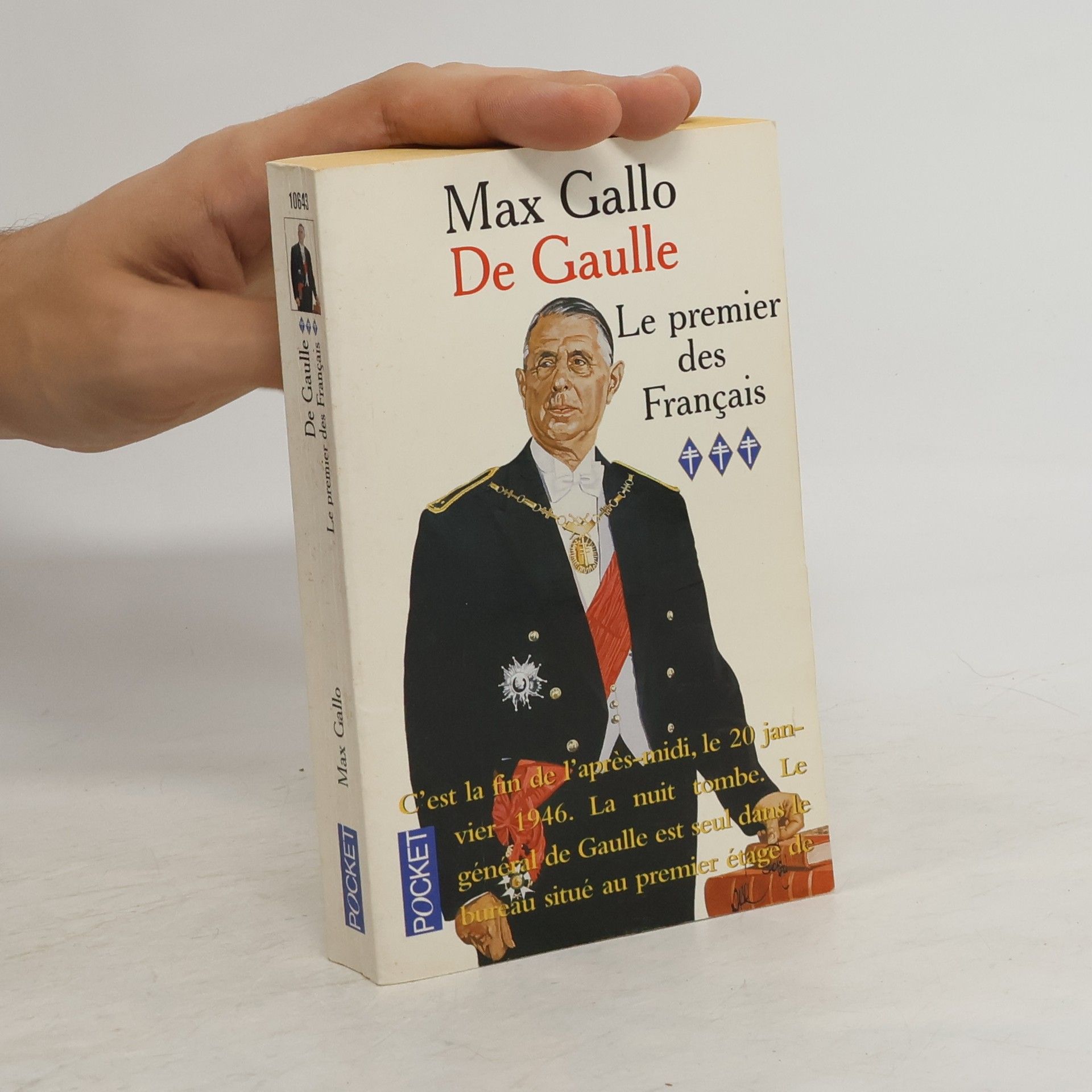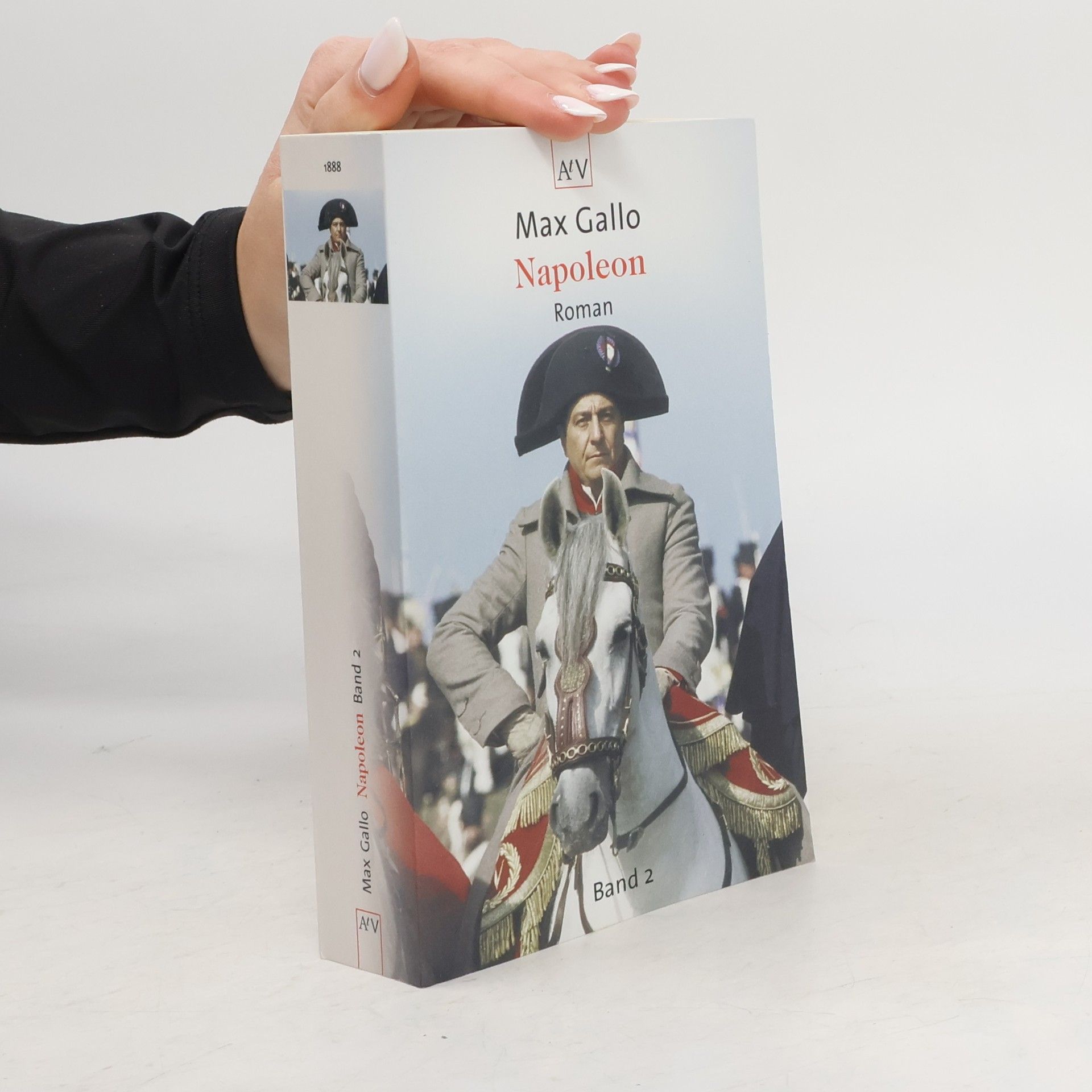Max Gallo Books
Max Gallo was a French writer and historian whose work often delves into the clash of ideologies and societal transformations. His writing, informed by a career in journalism and politics, offers a penetrating look into human motivations and social forces. Gallo explored the intricate relationships between individuals and history, employing a narrative style rich in analytical depth. Through his texts, he uncovered the complex nuances of human experience and historical progression.

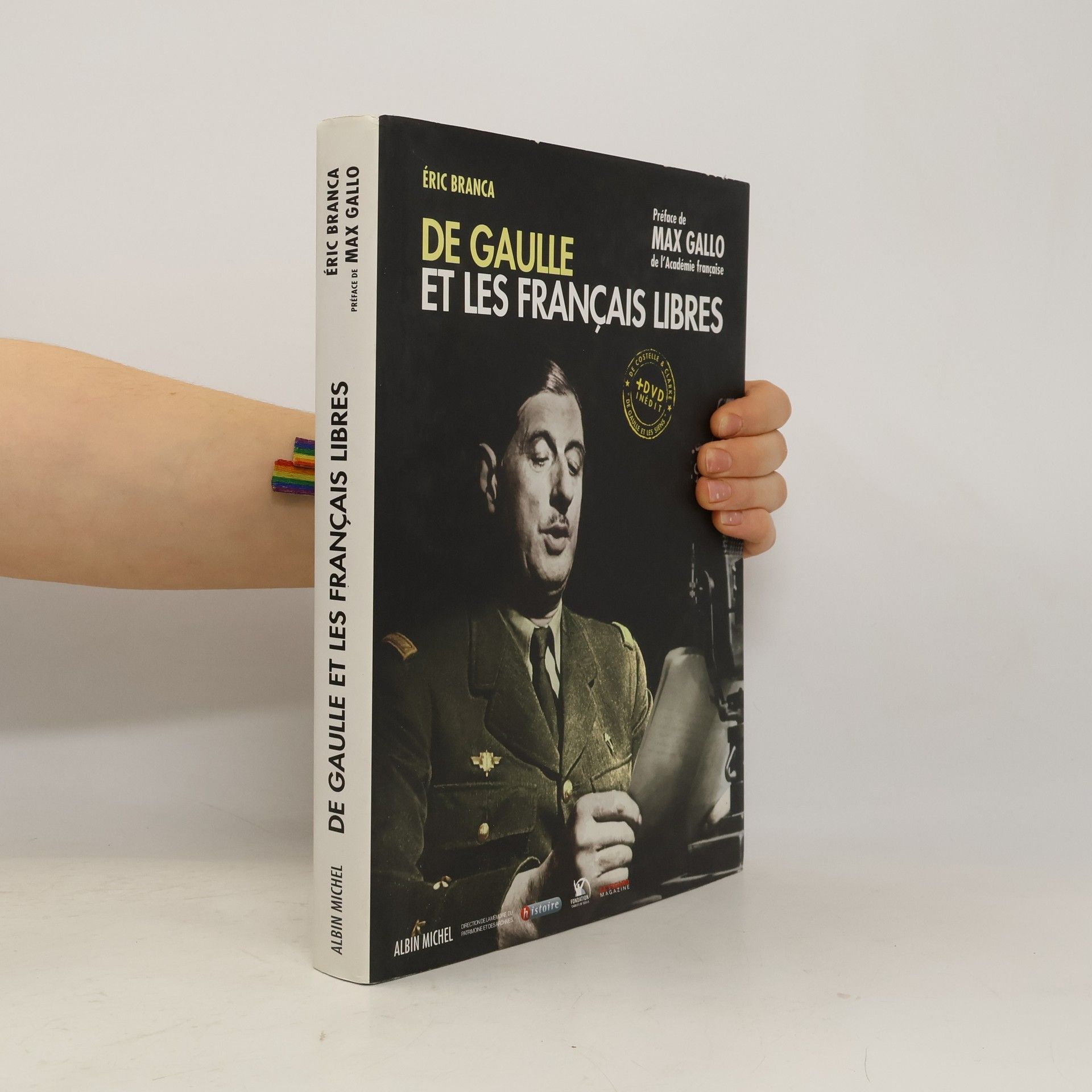

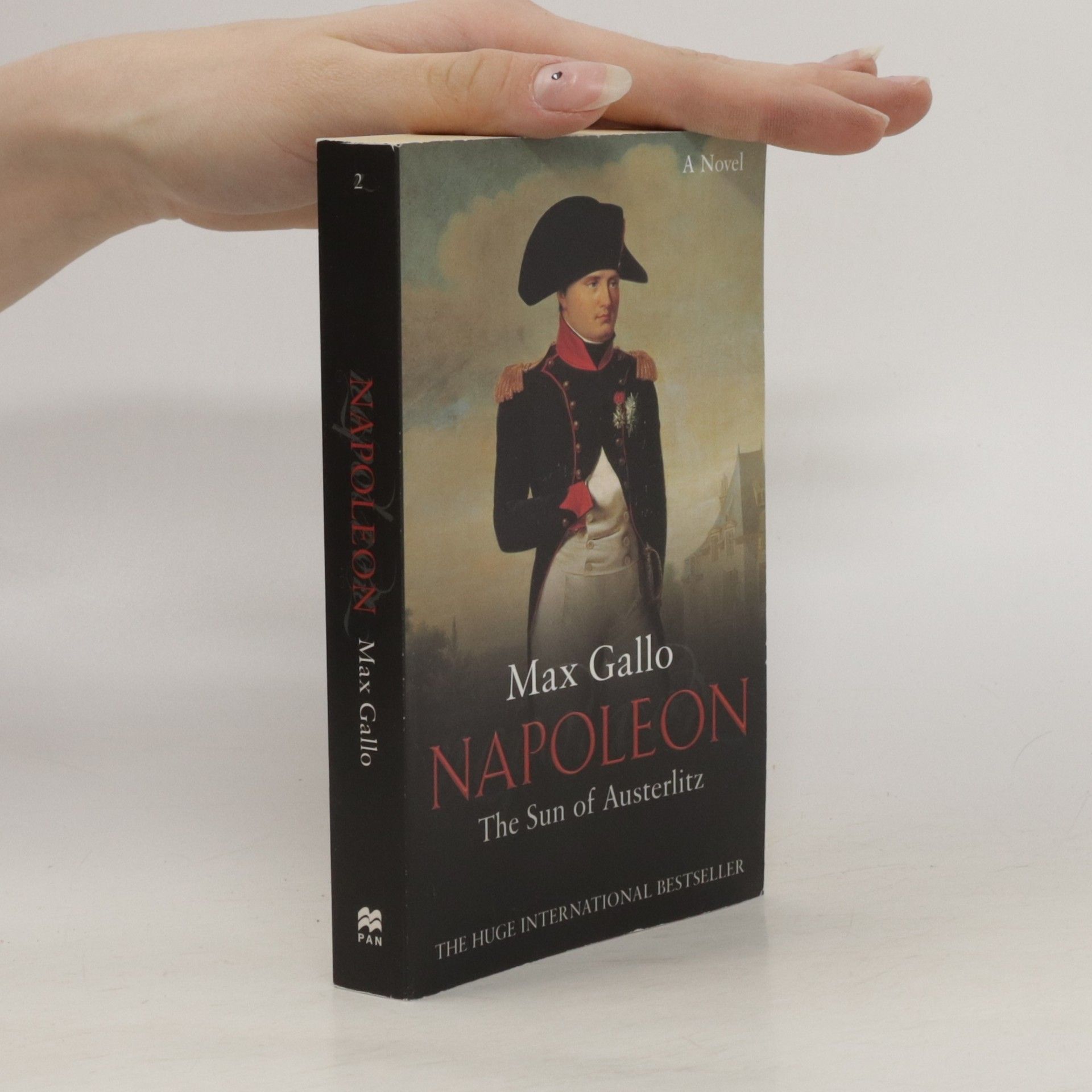


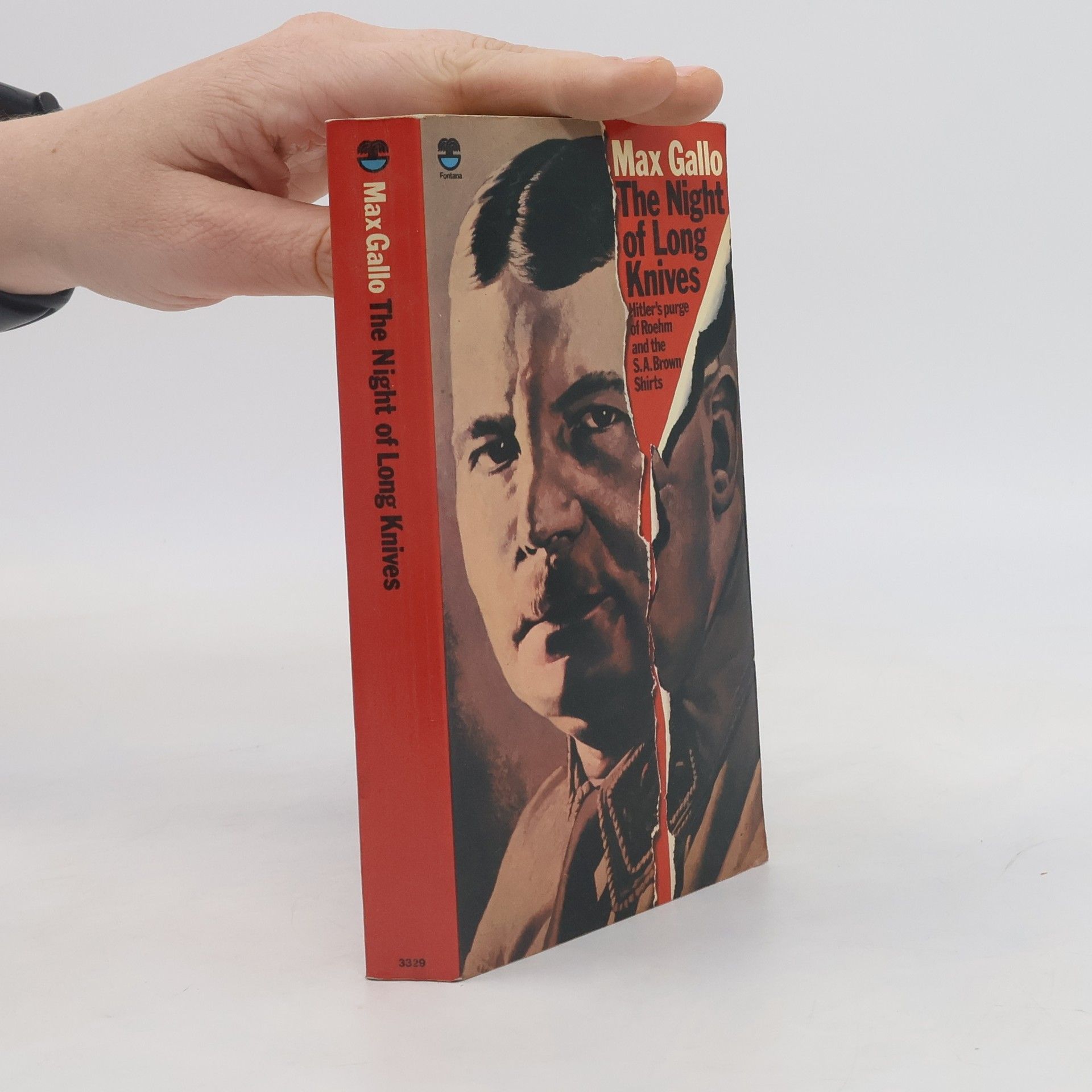
Reproduces posters that best reflect the social and political ideas of each decade since the French Revolution
Tracing the first 30 years of the Little Emperor's life, Max Gallo subtly introduces one of the greatest characters from European history. The text also dramatises Napoleon's rise as ambitious soldier, as well as his infatuation with the beguiling Josephine.
Napoleon is thirty years old in November 1799. He has played and won. Brumaire and the Consulate have put paid to the Directory. In five years at Notre Dame, the First Consul will be crowned Emperor of France. One year after that, in the sun of Austerlitz, he will be declaring, 'Soldiers, I am happy with you ' The legendary journey has begun. Conspiracies are rife. All - or almost all - the nations want to destroy him. He must be victorious, otherwise everything will collapse. 'Conquest has made me what I am. Conquest alone can preserve me.' But for how long? Max Gallo follows Napoleon's every step, intimately revealing him in all his extraordinary intelligence and genius. Thousands of books have been written about this mythical figure, undoubtedly one of the most illustrious in the world's history. But none like this, since Max Gallo, as both historian and novelist, is able at every moment to put himself on the most intimate of footings with Napoleon and to attune his account to the very pulse of his fabulous existence.
De la guerre, le petit Martin connaîtra tout : les privations, les humiliations, la peur durant le temps passé au ghetto de Varsovie, l'horreur absolue des camps nazis à Treblinka, la fureur de vivre quand il s'en échappera caché sous un camion, l'abattement et aussi le suprême courage quand il apprendra qu'il a perdu tous les siens... Et puisqu'il faut bien vivre, il s'engagera ensuite dans l'Armée rouge, puis partira aux Etats-Unis... Enfin la paix reviendra. Martin reconstruit alors sa vie et rencontre le grand amour en la personne de Dina. C'est dans le sud de la France, par une journée d'été éclatante, que le destin le blessera à nouveau - à mort - en décimant ceux qui lui sont le plus chers.
De Gaulle et les Français libres
- 272 pages
- 10 hours of reading
Refuser l'inacceptable au nom de tout un peuple quand ses élites, prostrées dans la défaite, préfèrent se résigner : le gaullisme de guerre s'est, d'emblée, confondu avec l'héroïsme.De la poignée de volontaires qui, à l'appel du 18 juin, rejoignirent l'Angleterre assiégée sur des bateaux de pêche aux conquérants de Rhin et Danube qui pourchassèrent l'ennemi jusqu'en Autriche ou aux combattants de l'ombre fédérés par Jean Moulin, c'est aux acteurs de cette incroyable épopée qu'est consacré cet album. Plus de 450 images prises au coeur de l'action, rythmées par les témoignages poignants de de Gaulle, Félix Éboué, Pierre Dac, André Malraux, René Cassin, Pierre Messmer, Pierre Mendès France, etc. L'album de l'épopée de la France Libre ! Cet ouvrage numérique propose par ailleurs des enrichissements exceptionnels par rapport à la version papier (les discours historiques de la période et des archives inédites issues de collections privées) ainsi que des modules vidéo extraits du documentaire De Gaulle et les siens , réalisé par Daniel Costelle et Isabelle Clarke et commenté par Jean-Louis Crémieux-Brilhac, historien et grande figure de la résistance.
Napoleon T.2
- 752 pages
- 27 hours of reading
Kontynuacja fascynującej biografii Napoleona, po mistrzowsku napisana przez Maxa Gallo. Druga część zbeletryzowanej biografii Napoleona, obejmuje lata 1806-1821. Cesarz pokonuje największych władców: pod Jeną, pod Frydlandem, pod Wagram. Jego podboje nie ograniczają się do bitewnych pół, z nie mniejszą energią zdobywa kobiety: Polkę Marię Walewską i Austriaczkę Marię Ludwikę, wnuczkę Marii Antoniny. W 1812 roku na czele Wielkiej Armii wkracza do Rosji. Odtąd powoli jego gwiazda zaczyna gasnąć. Pokonany przez srogi klimat, a potem sprzymierzoną przeciw niemu Europę, zostaje zesłany na Elbę. Jeszcze raz zrywa się do lotu, ale nad błotnistą równiną Waterloo nie wstanie już słońce Austerlitz. Anglicy przykują Napoleona do skały Wyspy Świętej Heleny, ale on odnosi swe największe zwycięstwo - żyje w pamięci potomnych. Jest nieśmiertelny.
>>Was für ein Roman war mein Leben<<, hat Napoleon gesagt. Und als rasanten Roman erzählt Max Gallo das erstaunliche Leben dieses stürmischen aller Helden, der wie in Meteor über den Himmel der Geschichte zog. In jeder Szene dicht bei Napoleon, erleben wir Schlachten und Aktionen, Liebesnächte und politischen Zwist und Niederlagen, Krönung und Exil immer aus der Sicht des Feldherrn und Kaisers.
Napoleon 2
- 1216 pages
- 43 hours of reading
>>Was für ein Roman war mein Leben<<, hat Napoleon gesagt. Und als rasanten Roman erzählt Max Gallo das erstaunliche Leben dieses stürmischen aller Helden, der wie in Meteor über den Himmel der Geschichte zog. In jeder Szene dicht bei Napoleon, erleben wir Schlachten und Aktionen, Liebesnächte und politischen Zwist und Niederlagen, Krönung und Exil immer aus der Sicht des Feldherrn und Kaisers.
